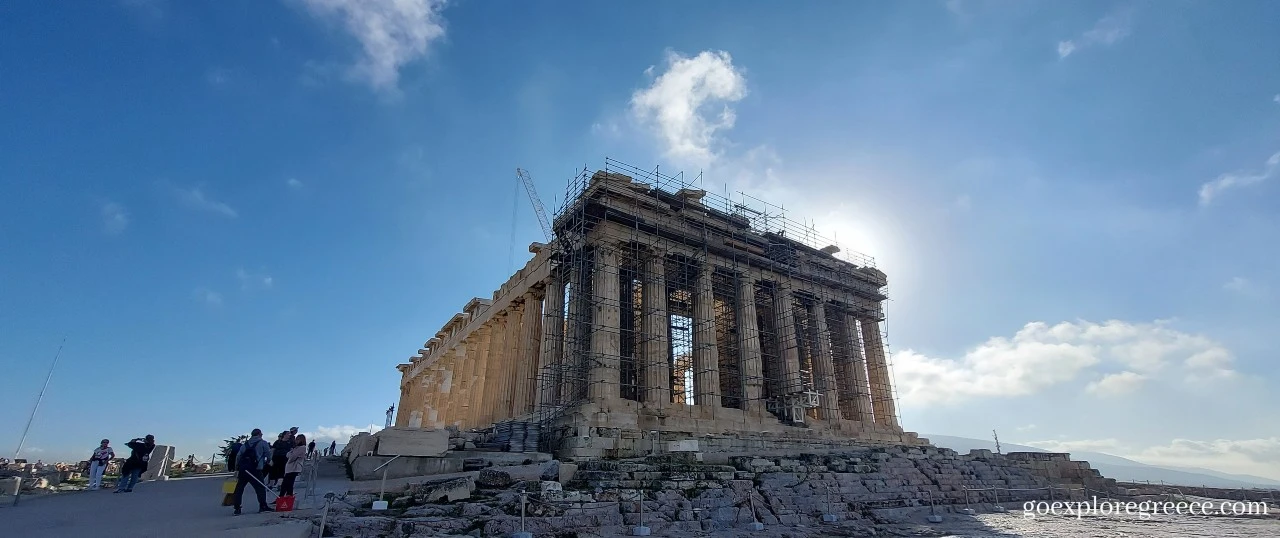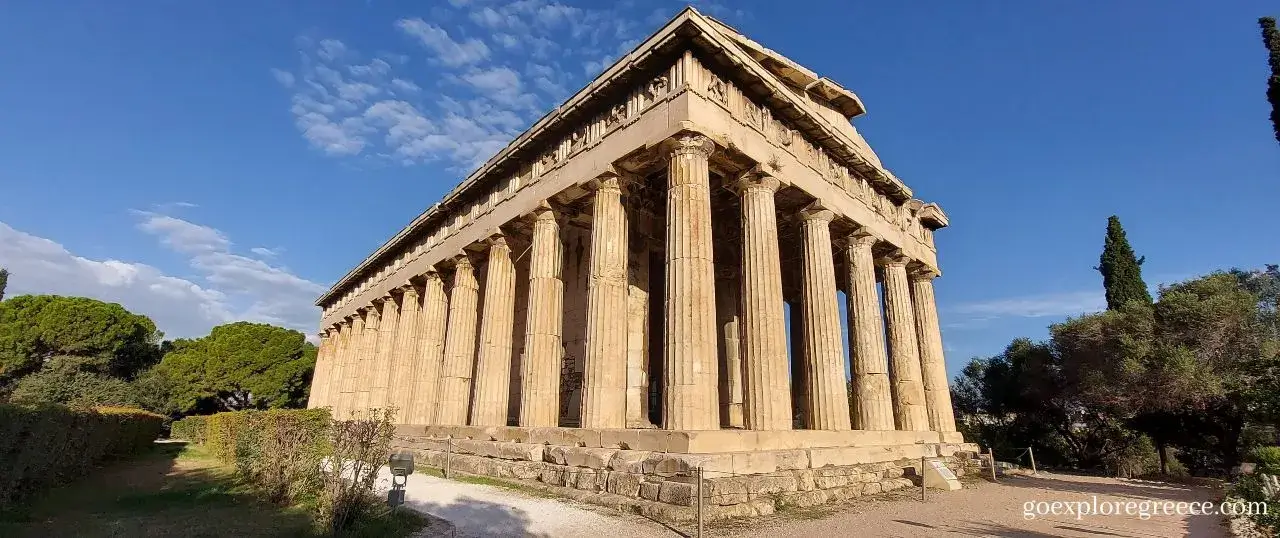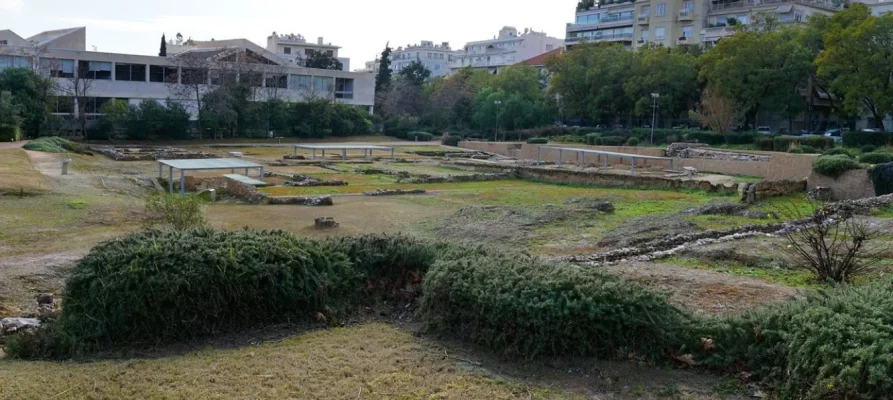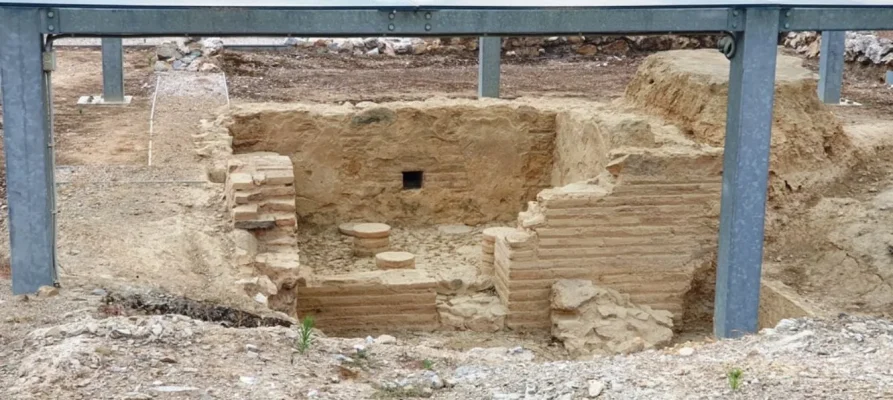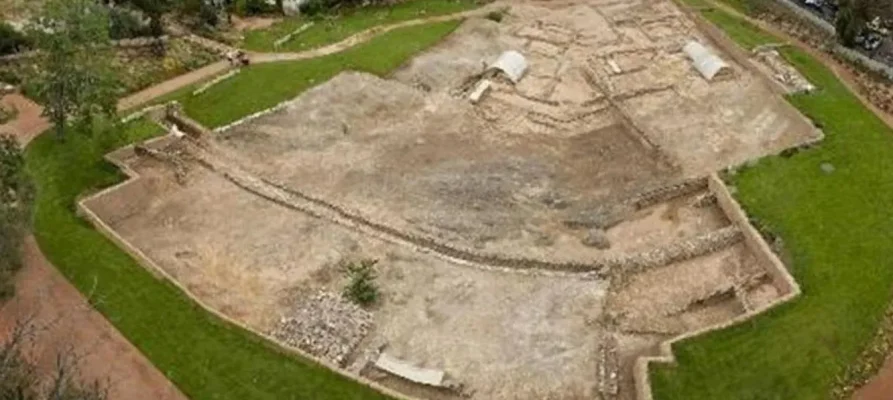Lyceum of Aristotle
Lyceum of Aristotle
As an avid traveller and someone who’s passionate about exploring ancient sites, I recommend visiting the Lyceum of Aristotle Athens, Greece. This hidden gem may not be as widely known as the Acropolis of Athens or the Parthenon, but trust me, it’s a must-visit destination for anyone interested in ancient sites in Athens. Also known as the Archaeological Site of the Lyceum of Aristotle and Aristotle’s Lyceum in Athens, it’s situated in the heart of modern Athens and just a few minutes walk from the Goulandris Museum of Contemporary Art and played a crucial role in the development of western thought and philosophy.
Founded by the renowned philosopher Aristotle in 335 BC, the Lyceum was a place for learning and a vibrant hub for social and cultural exchange in ancient Athens. Walking through the remnants of this once bustling centre of intellectual discourse, I couldn’t help but feel a deep sense of awe and admiration for the great minds that had once gathered here.
You might have heard of it by other names, such as the Peripatetic School, Aristotle’s Lyceum, the School of Aristotle, and the Archaeological Site of the Lyceum of Aristotle. But regardless of the name, this fascinating destination is one of Athens’s most important ancient sites. If you’re looking for things to do in Athens that offer a unique blend of history, philosophy, and natural beauty, the Lyceum should definitely be on your list.
One of the most striking aspects of the Lyceum is its layout. Unlike the typical ancient sites in Athens, the Lyceum features an intriguing mix of green spaces, shaded walkways, and fascinating architectural remnants. The site is a delightful escape from the bustling city. It offers a peaceful sanctuary where you can ponder the profound philosophical ideas that were discussed here over two millennia ago. The beautifully preserved remnants of the palaestra, gymnasium, and other structures provide a glimpse into the daily lives of the ancient Athenians who studied, exercised, and socialised within these walls.
Now, why is it called the Lyceum of Aristotle? Well, the story goes back to the 4th century BC when the great philosopher Aristotle, a student of Plato, established his own school here. He named it “Lyceum” after the site’s patron deity, Apollo Lyceus. It was here that Aristotle and his followers engaged in philosophical discussions, conducted research, and developed their groundbreaking ideas. The name “Peripatetic School” stems from the fact that Aristotle and his students would often walk around the covered walkways, or peripatoi, while engaged in deep discussions, hence the term “peripatetic” meaning “walking about” or “strolling”.
As for when the Lyceum was built, it’s difficult to pinpoint an exact date, but we do know that it was established during the time of Aristotle, around 335 BC. The Athenians constructed the complex to serve as a centre for learning, research, and physical exercise. The main purpose of the Lyceum was to provide a space for intellectual and cultural development, attracting the brightest minds of the time to discuss and debate ideas, and advancing the fields of philosophy, politics, and science.
When I visited the Lyceum of Aristotle, I was struck by the sheer historical weight of the ancient site. It’s incredible to think that the ideas and discussions that took place here continue to shape our world today, over two millennia later. This connection to the past is something that makes the Lyceum an essential stop for anyone interested in ancient sites in Athens.
One of the reasons I love exploring ancient sites is the opportunity to connect with the past, and the Lyceum of Aristotle offers this in spades. Standing in the very place where Aristotle and his students engaged in deep philosophical discussions, I felt an indescribable connection with the great thinkers of the past. I couldn’t help but imagine what it would have been like to be a part of the intellectual community that thrived here so many centuries ago.
The Lyceum of Aristotle is also a fantastic destination for those who enjoy nature and tranquillity. The site is beautifully landscaped, with lush greenery and towering trees that provide plenty of shade on warm Athens days. The verdant surroundings create a serene atmosphere that invites quiet contemplation and relaxation, a welcome respite from the hustle and bustle of the city. The gentle rustling of leaves and the chirping of birds only serve to enhance the peaceful ambience of the ancient site.
Another aspect of the Lyceum of Aristotle that I found particularly appealing was its connection to modern-day academia. The site is not only a testament to the past but also serves as an inspiration for today’s scholars and thinkers. As I observed groups of students and professors visiting the Lyceum, I was reminded of the enduring legacy of Aristotle and the impact his teachings continue to have on the world.
In conclusion, the Lyceum of Aristotle is a truly exceptional destination that should be on every traveller’s list of things to do in Athens. Its rich history, serene atmosphere, and convenient location make it a perfect addition to any Athens itinerary. Whether you’re a history enthusiast, a lover of ancient sites, or someone seeking a peaceful escape amidst the bustling city, the Lyceum of Aristotle will leave a lasting impression. Don’t miss the opportunity to explore this fascinating ancient site and walk in the footsteps of some of history’s greatest minds.
Here’s a fantastic way to save both time and money while exploring the incredible ancient sites in Athens. With a pre-booked combo ticket, I gained skip-the-line access to 7 of Athens’ top archaeological attractions, including the Lyceum of Aristotle (School of Aristotle), Acropolis of Athens, Ancient Agora of Athens, Roman Agora, Temple of Olympian Zeus, Hadrian’s Library, and Kerameikos Ancient Cemetery.
Not only did I enjoy savings of up to 50%, but I also bypassed the long queues of tourists waiting to enter these popular sites. Trust me, investing in this ticket made my Athens adventure so much smoother and more enjoyable:
Here’s my advice regarding access for those with disabilities and/or impairments at the Lyceum of Aristotle:
Accessibility is an important consideration when visiting ancient sites, and I’m happy to share some information on this topic for the Lyceum of Aristotle and other attractions in Athens. While efforts have been made to improve accessibility for visitors with disabilities and impairments, it’s worth noting that not all areas of these ancient sites may be easily accessible due to their historical nature and uneven terrain.
At the Lyceum of Aristotle, the pathways and grounds are relatively flat, making it easier for visitors with mobility issues to navigate the site. However, there may still be some uneven surfaces or small steps to be aware of.

